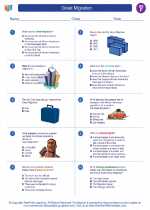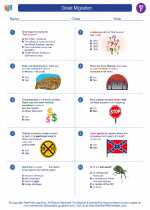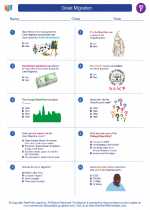Christopher Columbus
Christopher Columbus was an Italian explorer and navigator who completed four voyages across the Atlantic Ocean, opening the way for widespread European exploration and the eventual conquest of the Americas by Europeans. His expeditions, sponsored by the Catholic Monarchs of Spain, were the first European contact with the Caribbean, Central America, and South America.
Early Life
Columbus was born in the Republic of Genoa, Italy in 1451. He began his maritime career as a teenager, participating in several trading voyages in the Mediterranean and Aegean seas. He gained knowledge and experience in navigation and mapmaking during these early years.
First Voyage
In 1492, Columbus set sail with three ships - the Nina, the Pinta, and the Santa Maria - in search of a western sea route to Asia. Instead, he landed in the Bahamas, believing he had reached the East Indies. This event marked the beginning of the European exploration and colonization of the Americas.
Impact and Legacy
Columbus' voyages had a lasting impact on the world. They initiated an era of exploration, conquest, and colonization that had profound and lasting effects on the world. However, his expeditions also led to the exploitation and suffering of indigenous populations in the Americas.
Study Guide
- Where was Christopher Columbus born?
- Christopher Columbus was born in the Republic of Genoa, Italy in 1451.
- What were the names of the ships Columbus sailed on his first voyage?
- Columbus sailed with three ships - the Nina, the Pinta, and the Santa Maria.
- What was the lasting impact of Columbus' voyages?
- Columbus' voyages initiated an era of exploration, conquest, and colonization that had profound and lasting effects on the world.
By understanding the life and impact of Christopher Columbus, we gain insight into the age of exploration and its far-reaching consequences.
.◂Social Studies Worksheets and Study Guides Sixth Grade. Great Migration

 Worksheet/Answer key
Worksheet/Answer key
 Worksheet/Answer key
Worksheet/Answer key
 Worksheet/Answer key
Worksheet/Answer key
